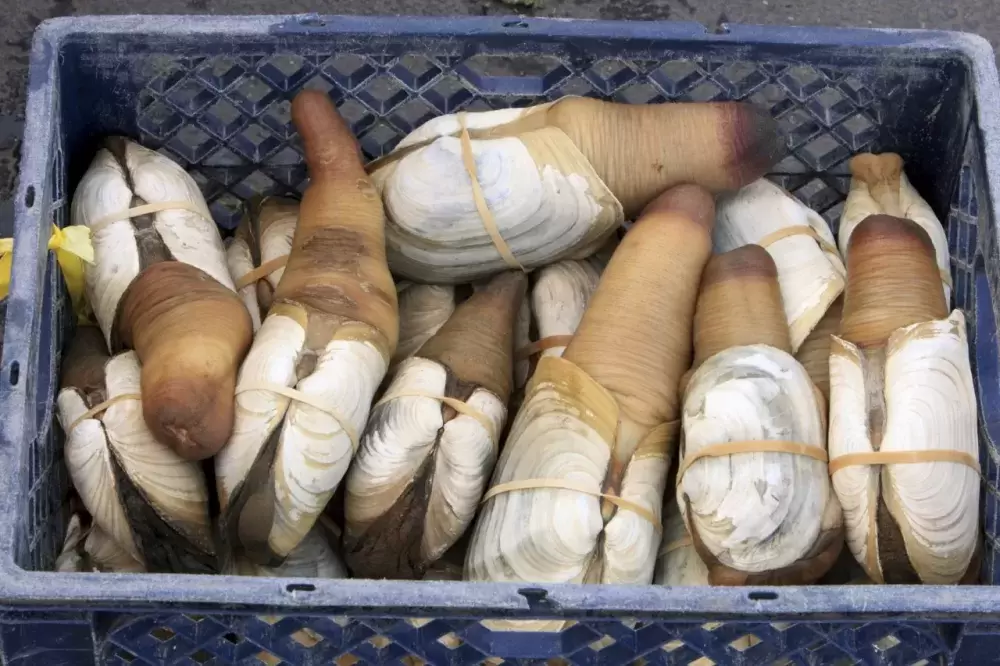The Maaqutusiis Hahoulthee Stewardship Society, made of Ahousaht’s hereditary chiefs, issued a statement to the Honourable Dominic LeBlanc, Minister of Fisheries and Oceans, declaring closure of commercial geoduck harvesting during the annual herring spawn.
“The Hawiih, Hereditary Chiefs of Ahousaht, declare that all commercial Pacific geoduck harvesting in Ahousaht territories are to be closed during the herring spawn,” reads the statement issued Feb. 26, 2018.
At a recent NTC Council of Ha’wiih Fisheries meeting, Keith Atleo raised Ahousaht’s concerns about ongoing commercial geoduck harvesting taking place in the waters directly in front of the village.
“We previously told DFO that we want geoduck harvesting closed down in Ahousaht territory so that the herring have a place to spawn, yet geoduck fishermen continue to work in front of the village, disrupting the eel grass; it’s disheartening to see,” said Atleo.
Geoduck is a species of very large, edible saltwater clam weighing an average of 1.5 pounds. They are native to the waters off of Western Canada and Northwestern Washington and Oregon States. An individual geoduck has an extremely long lifespan of about 140 years.
Commercial geoduck harvesting has increased over the years as the market value increased. In 2006 geoduck was $4 USD per pound wholesale. Today it is valued at $15 USD per pound wholesale and can fetch $150 per pound in Asian markets where the demand is high.
Geoducks can be dug on tidal flats just like clams, only they are deeper in the mud. In deeper water they are harvested by divers who use high pressure hoses to excavate geoduck beds.
It is this disruptive harvest method that concerns Ahousaht Ha’wiih when it is time for the herring to spawn. They know that the herring will only spawn in serene waters. “This is not only detrimental to the herring but also to the salmon populations,” said Atleo at the NTC Council of Ha’wiih meeting.
“The department needs to recognize the impacts geoduck harvesters have on habitat; when they’re done large clumps of eelgrass and other seaweeds wash ashore,” he noted.
He went on to tell Kevin Conley and Jerry Corriveau, Fisheries and Oceans Canada staff who attended he Council of Ha’wiih meeting, that Ahousaht wants the geoduck fishery in Miller Channel, Ahousaht territory, closed.
“The T’aak-wiihak case said we had no say in geoduck but they’re infringing on our food sources,” he told Conley and Corriveau. Atleo went on to say that there is no real monitoring of this fishery and that it impacts other fisheries.
“We’re tired of DFO not listening to our concerns; we hope that this message is brought to the right people,” said Atleo.
The Ahousaht Ha’wiih could not be reached for further details about the commercial geoduck harvest in their territory.







